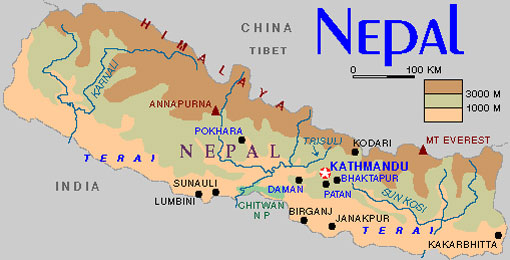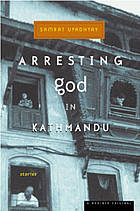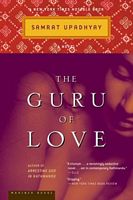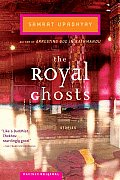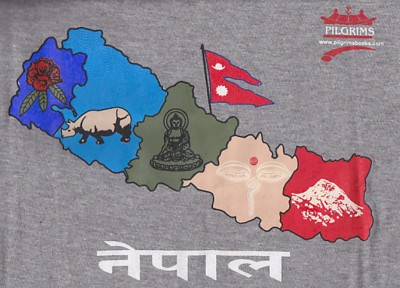
|
Authors' Contributions
Writers come from all parts of the world, and though many Americans may not be familiar with the literary, political, and cultural history of Nepal, two contemporary writers are valuable windows into knowing the peoples of Nepal. Though they may not represent all of the thirty plus million Nepalese with over ninety languages, Manjushree Thapa and Samrat Upadhyay are capturing life in modern Nepal during the last ten years. Both writers, in short stories, novels, and non-fiction are trying to make sense of the upheaval in a country that has maintained its political and cultural identity nestled in between the two giants of India and China. Most Westerners are somewhat familiar with the giant Everest and other mountains of the Himalayan northern border region of Nepal, and slightly familiar with the Himalayan region through the romantic interpretations via Jamrs Hilton's Lost Horizons and stunnnng videos of the varied landscapes (with another romantic "Shangri-la" interpretation), but these two writers, Manjushree Thapa and Samrat Uphadhyay, bring us to the everyday encounters of the people of Nepal. Manjushree Thapa's Mustang Bhot in Fragments (non-fiction, 1992),The Tutor of History (a novel, 2001), Forget Kathmandu: An Elegy for Democracy (non-fiction, 2005),Tilled Earth (story collection, 2007), A Boy from Siklis (non-fiction, 2009) Seasons of Flight (a novel, 2010), and The Country is Yours - Contemporary Nepali Literature (one of her many translations of contemporary Nepali literature, 2010) are works that delicately but directly address the topics of political change, people living in a changing culture, and Nepalese adapting to moves to the larger cities and abroad. Manjusthree Thapa has lived and been educated in both Nepal and the West (Canada and the U.S.) and brings a sharp eye with astute observations to her writing about her native Nepal.
Another writer, who likewise was born in Nepal, but now lives in the United States, teaching at Indiana University, is Samrat Upadhhay.(See Contemporary Authors for a quick overview of his contributions.) His short story collections Arresting God in Kathmandu (2001) and The Royal Ghosts (2006) provide poignant peaks into modern Kathmandu daily life while the novels The Guru of Love (2003) and Buddha's Orphans (2010) examine not only daily life but sharply focus on relationships influenced by tradition and the breakdown of tradition. (See an interview with the author: Nepalese Society.) Nepal's unique society, whereby Hinduism and Buddhism are intricately entwined into daily life while political change and modernity are making huge waves (in a land locked country), offer fertile ground for capable writers to capture the diverse tensions. Both Manjushree Thapa and Samrat Upadhyay present these tensions in artful ways. At the same time, both are firmly grounded in knowing humans as individuals with hopes, desires, conflicted interests, and emotions. Perhaps, one of their greatest gifts is that each, in having lived outside of Nepal, has developed some perspective on what their country and people are experiencing. Both do so with great compassion and understanding of their fellow Nepalese. We the readers are the beneficiaries of their artistic productions. For the purposes of this website I wish to introduce you to one of these writers, Samrat Upadhyay, who has captured my imagination. To get a quick sample of Upadhyay's writing read "During the Festival" from his first collection Arresting God in Kathmandu. (pages 84-98 in the Houghton Mifflin publication). During the FestivaI can be compared to an American story, Flannery O'Connor's "Good Country People" and a Chinese story "Sealed-Off" by Eileen Chang.
|
This site was created by Gerard Wollak at the NEH Summer Institute "Literatures, Religions, and Arts of the Himalayan Region," held at the College of the Holy Cross, Summer 2011.

